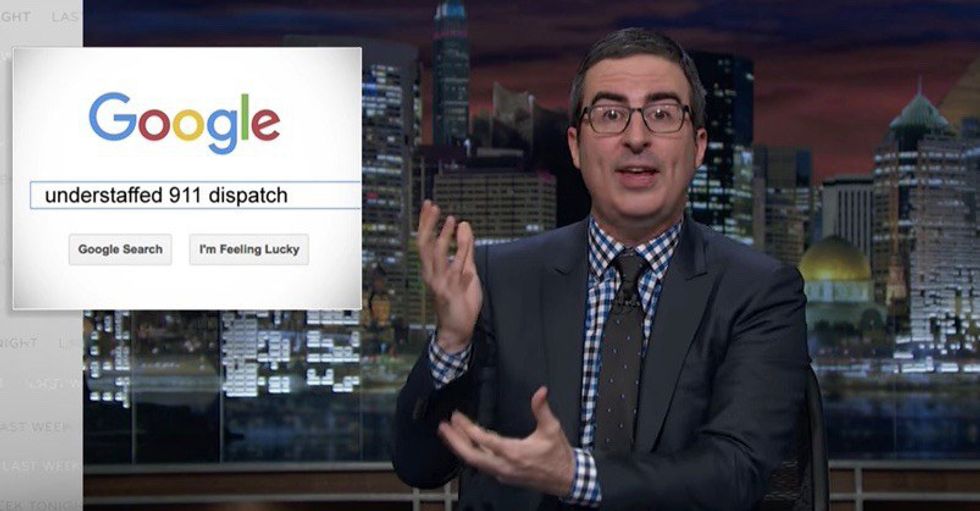HBO comedian John Oliver woke America up to the reality that 911 emergency service has become so bad, that an Uber pickup can find you faster than emergency call center across the country. An FCC report in 2014, reveals that location accuracy improvements could save over 10,000 lives yearly. But since 70 to 80 percent of 911 calls come from cell phones, the location information dispatchers get varies widely according to wireless service provider.
In Oliver’s segment, he used a clip from an NBC News special, where the reporter was calling from within an emergency call center from his phone, and the dispatcher still got the location wrong. Advanced locator technology already exists on phones. Users can check into Facebook at an exact address, order food through delivery apps and get picked up by Uber at the right address, so why can't 911 call centers figure out where we're calling from on our smartphones? In six states — Nevada, Wyoming, Missouri, Louisiana, West Virginia and New York — there is no entity in charge of 911 centers. Georgia has a committee to oversee emergency response services, but there is no one actually appointed to it. The committee has zero members.
"Uber can find you better than ambulances can," Oliver said in the video. "While the wireless industry does claim to be working toward incorporating some of what Uber uses into 911 location services, it seems there is no guarantee when that will be ready for widespread use." The FCC has mandated that wireless carriers improve accuracy by 2021, but that won't make much of a difference if many 911 call centers are underfunded and severely understaffed.
America neglects its 911 services because we've never felt they were in danger. They are reliable; they are trustworthy; they always come through when there is an emergency. This is what we have grown up believing, and it's what we will continue to believe until someone we know can't get the care they need. Out of sight, out of mind, out of the scope of the government's purview and thus the government's funding. “We’re taught from a young age to take 911 for granted," said Oliver. "Perhaps it’s time for that to change.”
Staffing problems continue to plague 911 emergency call centers, Oliver points out, which means that when you dial 911, the first voice you hear might be an automated response message while you wait on hold. Do you recall those 911 service fees on your phone bills? That money doesn’t always end up helping fund 911 call centers to hire more staff or update their technology. Most states divert those funds elsewhere.
Specifically, in Florida, dozens of call centers are understaffed. In 2014, It was reported that the Hillsborough County Sheriff’s Office 911 dispatchers were forced to work 12-hour shifts and watch five computer monitors each. Departments in Miami Beach, Osceola County and across the country have reported feeling a similar crunch. Increasingly, dispatchers are using the job as a springboard to other law enforcement positions.






















